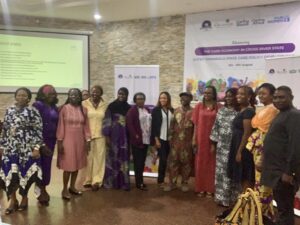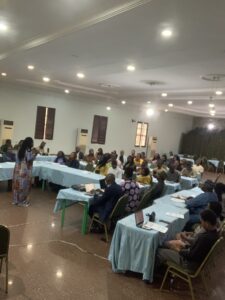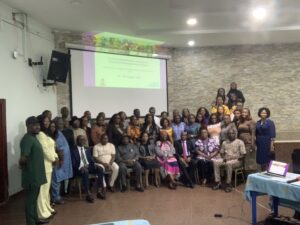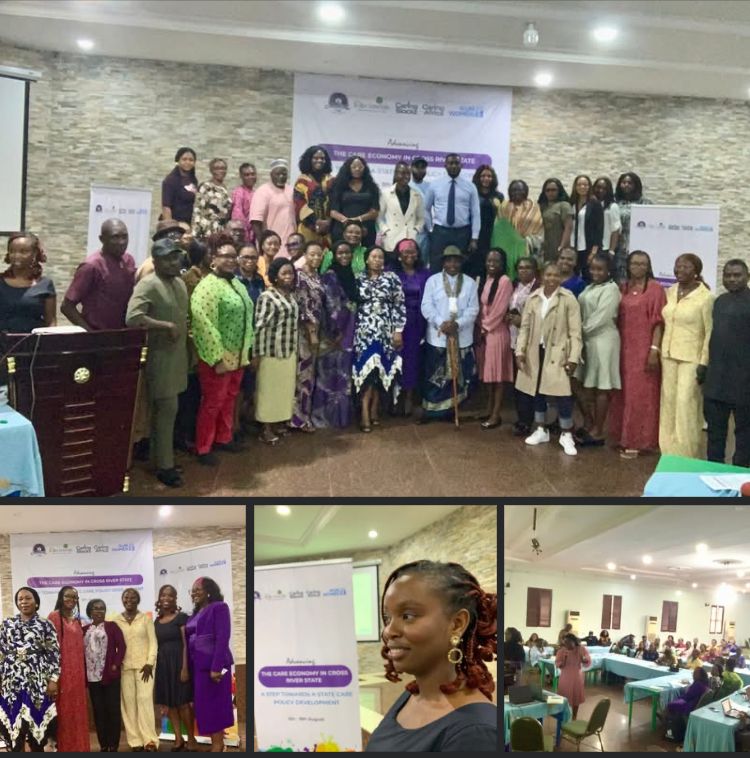The Special Assistant to the Governor of Cross River State on Gender Mainstreaming, Utibe-Abasi Orok Bassey-Duke, has raised the bar for gender-focused governance by facilitating a high-impact Care Economy training for key stakeholders in the state, with support from UN Women, Care Africa, Care Block, and Baby Lounge.
A proud member of the Global Alliance for Care — an initiative sponsored by the Government of Mexico and the United Nations, Utibe-Abasi’s tireless advocacy has positioned Cross River State as the only Nigerian state recognized as a Global Care Alliance member. This prestigious inclusion marks a significant milestone in Nigeria’s journey toward gender-responsive care systems.

The training brought together stakeholders from various ministries, civil society organizations, and community-based institutions to explore the concept of care work, its economic impact, and how recognizing and compensating caregivers can drive sustainable development in Cross River.
During the event, UN Women representatives Aisha and Temitope emphasized the economic potential of formalizing the care sector, noting that Cross River could generate millions in value if a well-structured care policy is implemented.


In an exclusive interview with Calabargist, Utibe-Abasi shared that the achievement followed months of lobbying, coordination, and strategic engagement with global partners. She expressed pride in the training, which successfully empowered hundreds of Cross Riverians with practical knowledge about the care economy, and announced the formation of a policy drafting team to develop a care framework tailored to the state.
Utibe-Abasi extended heartfelt appreciation to Governor Bassey Edet Otu and First Lady Bishop Dr. Eyoanwan Otu for entrusting her with this strategic role. She also acknowledged the support of the UN Women who continue to strengthen institutions. She thanked participating Ministries, Departments , Research Institutions and NGOs, calling on all stakeholders to continue advocating for caregivers and pushing for policy reforms that will recognize, support, and empower care workers across the state.
“This is only the beginning. With collective action, Cross River can lead the way in transforming care into a powerful tool for gender equity, economic growth, and social well-being,” she said.



